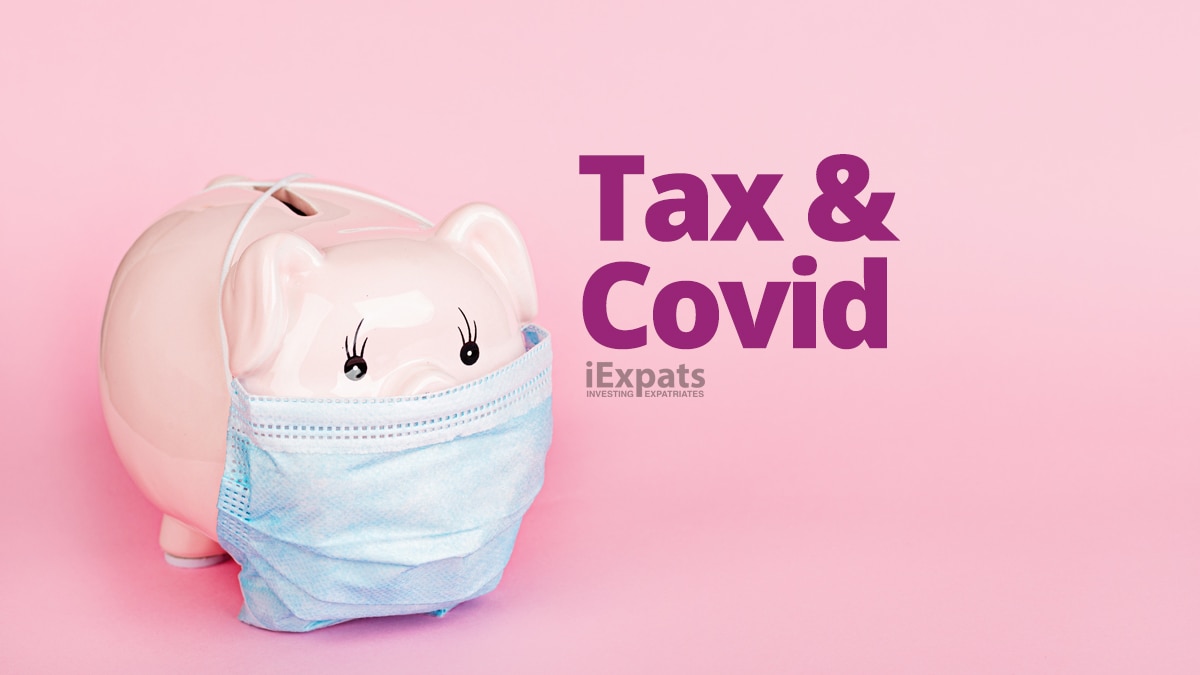Expat landlords prevented from completing their self-assessment tax returns on time due to COVID-19 can use the pandemic to avoid late-filing penalties, says HM Revenue & Customs.
Expats will still pick up the automatic £100 fine for missing the deadline regardless of if they owe any tax.
An HMRC source explained the government wants to collect as much tax as possible to offset the economic effect of the COVOD-19 pandemic but accepts many taxpayers are unable to file their returns because of the virus.
“We want to encourage as many people as possible to file on time even if they can’t pay their tax straight away, but where a customer is unable to do so because of the impact of Covid-19 we will accept they have a reasonable excuse and cancel penalties, provided they manage to file as soon as possible after that,” said an HMRC spokesman.
“Support is in place for those who may struggle to pay with customers able to spread their payment liabilities of up to £30,000 over 12 months.”
Around 5.5 million taxpayers are due to send HMRC their tax returns online by midnight on January 31.
Any returns received after the deadline pick up the automatic penalty even if the taxpayer owes no tax or is due a refund.
How To Appeal A Late-Filing Penalty
HMRC accepts online or written penalty appeals on a Form SA370 as an individual or SA371 as a business partner.
To file an appeal online, you need a Government Gateway ID.
To appeal you need:
- The date the penalty was issued.
- The date you filed your tax return if you have filed.
- Your explanation of why the deadline was missed.
Generally, the appeal should be filed within a month of the missed deadline, but for COVID-19, HMRC has extended the limit to three months – which is April 30 for the 2019-20 self-assessment year.
This year, acceptable excuses include:
- Bereavement of a partner or close relative due to COVID-19
- Catching COVID-19 yourself, confirmed by a doctor or coronavirus test.
Save £100 And Dodge The Late-Filing Penalty
Tax professionals have a trick up their sleeve that helps clients avoid the self-assessment late-filing penalty.
If a client does not have enough information to file a complete self-assessment return by the deadline, tax professionals will include a bests estimate or provisional figure instead.
Do not leave a blank box or mark the return ‘information to follow’.
Insert the provisional figure and briefly explain in the additional information box why the final figure is not included. If a box is empty, HMRC will classify the return as incomplete and issue a penalty.
Tell HMRC when the updated figure should be available.
File the return before the deadline and HMRC should not issue a late-filing penalty. Make sure any tax due is paid at the same time.
If too much tax is paid once the figures are amended, HMRC will refund the overpayment with interest.
Taxpayers have up to 12 months from the date of filing the return to update or amend the figures.
Provisional and estimated figures are not the same.
Provisional figures are the best available when the return is filed, while estimated figures are likely to be the best figure available at any time due to lost documents.
This tax year, figures may be estimated or provisional because taxpayers cannot access their financial records due to COVID-19.
Paying Tax In Instalments
Taxpayers who are struggling financially due to COVID-19 can spread the cost over several months under the Time to Pay scheme.
You still must pay interest on the debt but can opt to make a lump sum payment plus monthly amounts or regular instalments.
To qualify for time to pay taxpayers must show:
- They owe less than £30,000 in tax.
- Have no other active debt repayment plan with HMRC.
- Their tax filings are up-to-date.
- They have acted to settle the bill within 60 days of any tax falling due – which is March 31, 2021 for this year’s January 31 self-assessment round.
Time to Pay accounts can be set up online or by calling HMRC on 0300 200 3822 between 8am and 4pm weekdays.
Be ready to answer these questions:
- How much do you owe and why can’t you pay your tax?
- What efforts have you made to raise the money to settle your tax debt?
- How much can you pay immediately and what can you pay in regular instalments to clear the debt?
- How much you receive in income and what are your outgoings?
You will also need your self-assessment tax reference (UTR), bank account and debit or credit card details.
Find out more about Time to Pay
Late-Filing And Self-Assessment FAQ
The most common taxes paid by expats are income tax on buy-to-let rental profits and capital gains tax (CGT) on gains from selling investment property or stocks and shares.
Living overseas is not accept as a reasonable excuse for late-filing and the deadline for overseas taxpayers is the same for those living in the UK.
This year’s self-assessment tax return is for the 2019-20 tax year which runs from April 6,2019 until April 5, 2020 inclusive.
No, you shouldn’t pay tax twice on the same income or gains due to a double taxation treaty or other agreement between the UK and the country where you live.
Your self-assessment forms for 2019-20 must be with HMRC by midnight on January 31, 2021.
HMRC has online webinars and tutorials to help taxpayers complete their self-assessment tax returns.
You should retain your financial records that support the figures on your tax return for at least five years from January 31, 2021.
Related Information
Below is a list of related articles you may find of interest.
